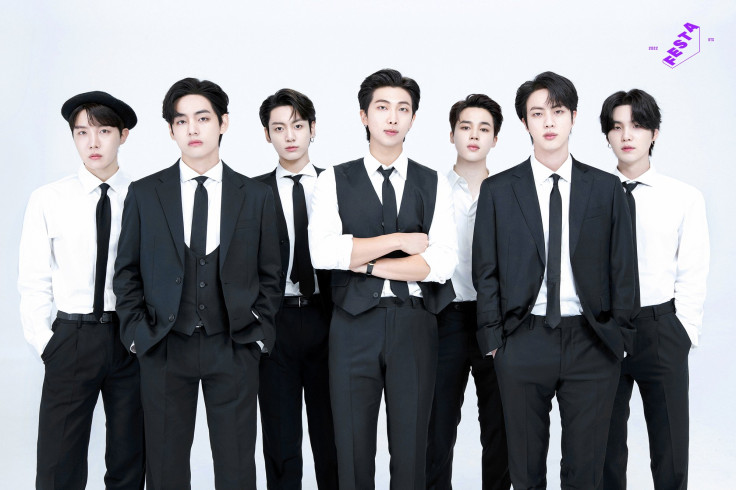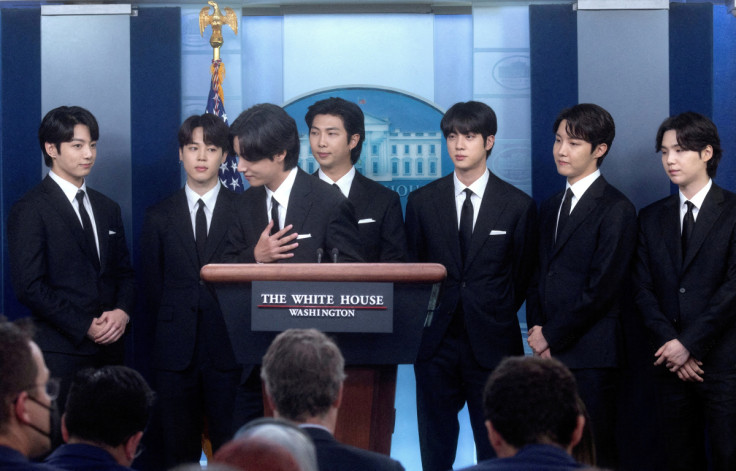Study Shows How BTS Helped Save Lives During COVID-19 Pandemic

KEY POINTS
- A Dartmouth-led study revealed that BTS became the "strongest driver" of WHO's "Wear A Mask" campaign
- Director-General Tedros Adhanom Ghebreyesus tweeted a thank you message to BTS for its support
- BTS' popularity was used as leverage to deliver public health messages worldwide
A study revealed that K-Pop sensation BTS became the "strongest driver" that saved countless lives during the COVID-19 pandemic when they took part in the World Health Organization's (WHO) "Wear A Mask" campaign.
When the pandemic hit over three years ago, causing a worldwide lockdown that put everything on hold, public health organizations had to amplify their plans to ensure a decrease in the spread of the disease.
Mask-wearing was one of the most important tools, prompting the WHO to launch the #WearAMask challenge, which urged people citizens across the globe to wear a mask to protect their loved ones from the virus.
To gain more traction, the health organization had an interesting strategy up its sleeve, and it involved BTS. Director-General Tedros Adhanom Ghebreyesus once tweeted a "thank you" to the internationally acclaimed group — with millions of fans, known as ARMYs, worldwide — for supporting the mask-wearing campaign as part of the release of its first-ever English single, "Dynamite," in 2020.
Interestingly, the tweet became the most-shared mask-wearing tweet as more and more K-Pop fans started to re-share it. It was observed that when Ghebreyesus used entertainment groups such as BTS to deliver public health messages, it generated 111 times more virality of re-tweets, per a recent Dartmouth study led by Herbert Chang, an assistant professor of quantitative social science at the university.
Upon analyzing about 7 million tweets on mask-wearing, findings showed that using BTS' popularity was one of the WHO's communications strategies to amplify the spread of its public health messaging. The 16 unique tweets that included BTS — most published by Ghebreyesus — accumulated about 234,600 retweets. As for the other 2,140 tweets that did not mention the superstar group, they generated about 282,650 — nearly the same number as those that mentioned BTS.
In the study, the researchers also looked into the rates of mask-wearing tweets with and without BTS in countries that used X, formerly Twitter. It was revealed that there was a massive update in Western countries, most notably in the U.S. However, the increase in virality between retweets with K-Pop over those without was more prominent in the global south, such as Southeast Asia and South America.
The data showed Vietnam had a 3,840% increase in virality, South Korea had 3,190%, the Philippines had 1,290%, Peru had 1,080%, and Argentina had 845%. Meanwhile, the U.S. only had a 56% increase and the United Kingdom saw 28%.
For BTS-related tweets in the U.S., specifically South Dakota, North Dakota, Mississippi, Missouri, Utah, Louisiana, Wisconsin, and Nebraska had the biggest viral boost percentage.
Speaking of the study, lead researcher Chang said, "Fandoms can act as powerful catalysts for online and offline collective action. They can generate interventions at a global scale."
In an interview with Vermont Public, he further explained how such a strategy influenced K-Pop fans, though the hashtag activism caused huge concern. Such online movements "matched" with in-person donations, and fans started to donate the refunds from BTS' canceled concerts to different organizations such as Black Lives Matter and UNICEF — which collected about $3 million to $4 million in total.
To read more about the findings, fans could check out the full study here.

© Copyright IBTimes 2024. All rights reserved.






















